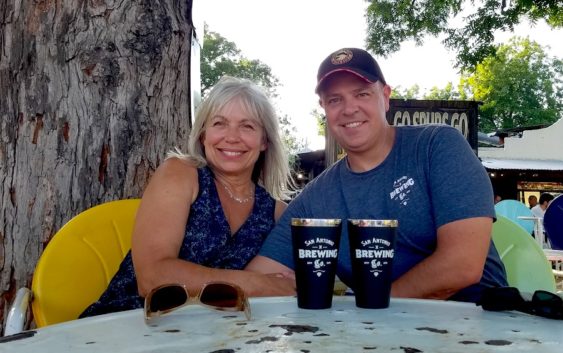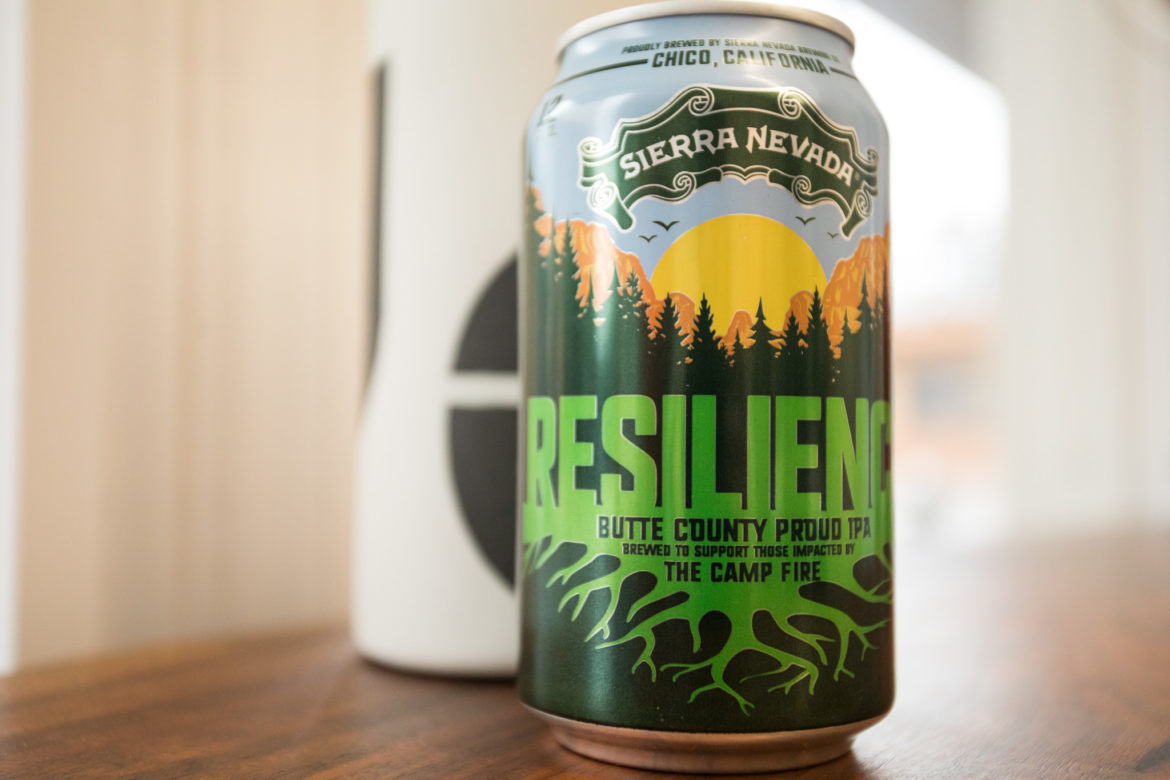- One year after devastating Panhandle wildfires, Canadian resident reflects on the work of rebuilding
- Hays County judge says software glitch caused some communication issues during wildfires
- FEMA deadline for Hurricane Helene recovery aid to governments, nonprofits extended
- Sellers and Rantanen are among the NHL trade deadline winners. Hurricanes and Boeser are some losers
- Hurricane forecasters express concern over NOAA job cuts impact
Craft Brewing Effort to Aid Wildfire Victims a Mash of Resiliency, Grit, Grist

Years ago, the pioneering Sierra Nevada Pale Ale was just about the only craft beer available in many bars and stores across the nation. Today, with its Chico, California, community having been devastated by the Camp Fire of November 2018, the Sierra Nevada Brewing Co. is seeing an important return on that early investment in a nationwide presence.
More than 1,400 craft brewers from Maui to Maine, and from Alaska even to Armbridge in the United Kingdom, have joined on for Sierra Nevada’s Resilience Butte County Proud IPA fundraising campaign, to benefit victims of the most destructive and deadliest wildfire in California history.
Three San Antonio brewers are among them: Alamo Beer Co., Freetail Brewing Co., and Künstler Brewing.
The raging wildfire caused an estimated $16.5 billion in losses, including 89 lives and almost 19,000 buildings. The nearby Sierra Nevada Brewing facility, located in downtown Chico, California, was not among the structures lost. A widely available photograph from atop its kettles shows the brewery’s proximity to the blaze, however, and its many of its employees were directly affected.
The company began its Sierra Nevada Camp Fire Relief Fund while the fire was still burning — it raged for 13 days before being extinguished by a massive effort — and the fundraising effort soon morphed into the Resilience IPA nationwide campaign.
Vera Deckard, Künstler owner and self-described “brewster,” has friends and family in northern California and had been following their statuses on Facebook during the fire. One friend forwarded her a post, an appeal from Sierra Nevada owner Ken Grossman — sent from Chico, California, even as the fire raged nearby — for brewers around the world to join the campaign. The brewery would provide a recipe, arrange for free ingredients, connect donors with its bank to receive funds, and send marketing materials including custom coasters.
“That sounds like something I’d really like to do,” Deckard told herself, but she was unsure how people in Texas would respond to a distant disaster. “But just being in the tavern, I heard so many people talk about how they were affected,” she said. “Everybody knows somebody who’s affected somehow, or knows somebody who knows somebody.”
Vera (left) and Brent Deckard enjoy a drink at the Friendly Spot Ice House in Southtown. Photo by Iris Dimmick.
Deckard jumped on board even before the distribution agreements had been worked out for Sierra Nevada to arrange free ingredients for participants. But Deckard found that the local suppliers she contacted for grains, yeast, and hops — Brewers Direct, Texas Cultures Yeast Lab, and Hop Heaven — were already prepared to contribute.
Deckard next followed Sierra Nevada’s recipe for the special India pale ale and, like craft brewers across the country, made the beer available to her local patrons, with proceeds beyond the cost of production to be collected for the Camp Fire Relief Fund.
Though the United States is huge, she said, “I still think we’re one country, and it just felt like something we needed to do.”
Jason Davis, director of brewing operations for Freetail, heard about the fundraising campaign through the Brewers’ Association and did not hesitate to join the cause. His enthusiasm was partly based on Sierra Nevada’s reputation for quality and community-mindedness.
“They are the top brewery in the country,” Davis said. “they drive the entire quality movement in the craft brewers community. They are constantly improving their own process, improving their own production, and also sharing that kind of information with the community.”
Eugene Simor, president of Alamo Beer Co., agreed. “Even though they’re a very big brewer, as far as craft brewing is concerned, they’ve done a great job of remaining connected and continuing to help small brewers,” he said. “When a group like that reaches out, it’s already got the credibility, so you know you can jump on board.”
Alamo used its one-keg brew system, at the ready for experimental brews to be offered in the company’s beer hall, to produce about 100 pints of its version of Resilience IPA. Sierra Nevada welcomed brewers at all scales of production to pitch in, even providing a 5-gallon version of the recipe for homebrewers.
Alamo’s batch went fast, and at the time of this writing, Künstler’s batch was nearing the end of its last keg. Davis, though, went full-bore and devoted an entire 20-barrel kettle to Freetail’s batch, which amounts to 36 kegs. For the moment, Resilience IPA is still on draught at both the 1604 and South Presa Street Freetail locations.
Davis stuck close to the recipe, having regularly used American Ale Yeast No. 1 — called “Chico” in the brewing community because its use was pioneered there by Sierra Nevada in the 1980s — for his own brews. “We went by the book, including water treatment. When I first tasted it, I was like, ‘This tastes like a Sierra Nevada beer!’” he said.
“So many people from my generation who started out homebrewing will say the first homebrew they ever made was a clone of Sierra Nevada Pale Ale,” he said. Once Resilience came out, which he said tastes similar to Sierra Nevada’s annual feature Celebration Ale, Davis enjoyed tasting his fellow brewers’ versions in the city.
Alamo Brewmaster Gregg Spickler said he also stuck close to the recipe. “We use a little bit different grains,” he said.
Identifying why so many brewers from around the country, including his San Antonio colleagues, would jump on board with the Resilience campaign, Spickler spoke to the heart of the brewing industry.
“We’re all fighting for the same shelf space, but at the end of the day, the camaraderie within the craft beer community” takes precedence, he said. “We’re all willing to band together, to give what we can to help somebody else out.”

Bonnie Arbittier / Rivard Report
More than 1,400 craft brewers have joined Sierra Nevada Brewing Co.’s Resilience Butte County Proud IPA campaign.
Local breweries are still tallying the amounts raised for the cause, but a total estimate runs from $17,500 to $20,000. Multiplied by 1,400 breweries, the total amount raised for fire victims could exceed $20 million. “More is better!” Deckard said.
According to its website, Sierra Nevada was initially hoping to raise “more than $10 million.” Inquires to the company were met with an automated e-mail response: “We are diligently working to respond to all inquiries. Responses may take longer than usual due to email volume,” which could suggest the response has been overwhelming.
If the Resilience IPA campaign is to be held as evidence, then a quote attributed to Hunter S. Thompson might just be true: “Good people drink good beer.”
Resilience IPA is in short supply. Freetail’s two locations are still serving it, but Künstler Brewing is nearing the end of its batch. As it happens, the last six-pack of Sierra Nevada’s original canned brew was purchased by this reporter from Whole Foods Market, which no longer carries the limited-run batch, and H-E-B locations do not have it available.


